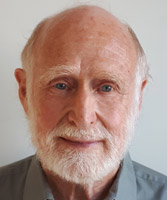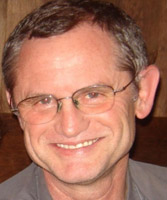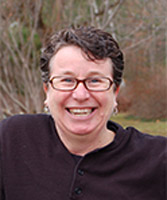Our Team
Herschel Hardin
 Herschel Hardin is a former president of the North Shore Schizophrenia Society (now Pathways Serious Mental Illness Society), founder and former editor of the NSSS Advocacy Bulletin, and currently president of the Riverview Village Intentional Community Society. He was also on the board of the B.C. Schizophrenia Society and on its advocacy committee. He has a son with schizophrenia. Herschel is a long-time advocate for those with a serious mental illness and their families, with an intimate knowledge of the field gained over several decades. He is the author of a bellwhether 1993 article on involuntary admission, “Uncivil Liberties” (widely circulated in both Canada and the United States) and other articles on issues involving mental illness and the B.C. Mental Health Act. Working with his wife, Marguerite Hardin, the founder of NSSS’s ground-breaking Family Support Centre and its long-time support coordinator, he provided, in the Advocacy Bulletin, “front-line” reporting and analysis of mental health services, including probing articles on system failures. He also filled in when needed as a one-on-one peer family crisis counsellor. He was a long-time teacher of the Support Centre’s education course Family-to-Family and was editor of the course for B.C. use. He developed a training manual and training program for one-on-one peer family support workers, drawing on Marguerite’s pioneering work. He brings with him strategic planning experience, as a consultant, corporate director, and pro bono volunteer.
Herschel Hardin is a former president of the North Shore Schizophrenia Society (now Pathways Serious Mental Illness Society), founder and former editor of the NSSS Advocacy Bulletin, and currently president of the Riverview Village Intentional Community Society. He was also on the board of the B.C. Schizophrenia Society and on its advocacy committee. He has a son with schizophrenia. Herschel is a long-time advocate for those with a serious mental illness and their families, with an intimate knowledge of the field gained over several decades. He is the author of a bellwhether 1993 article on involuntary admission, “Uncivil Liberties” (widely circulated in both Canada and the United States) and other articles on issues involving mental illness and the B.C. Mental Health Act. Working with his wife, Marguerite Hardin, the founder of NSSS’s ground-breaking Family Support Centre and its long-time support coordinator, he provided, in the Advocacy Bulletin, “front-line” reporting and analysis of mental health services, including probing articles on system failures. He also filled in when needed as a one-on-one peer family crisis counsellor. He was a long-time teacher of the Support Centre’s education course Family-to-Family and was editor of the course for B.C. use. He developed a training manual and training program for one-on-one peer family support workers, drawing on Marguerite’s pioneering work. He brings with him strategic planning experience, as a consultant, corporate director, and pro bono volunteer.
Ric Matthews
 Ric Matthews is an executive management professional with over 20 years’ experience in for-profit and not-for-profit organizations. He is CEO of Ric Matthews Consulting Inc. Currently, in partnership with Prosci Canada, he provides training, consulting and facilitation services in change management, strategy development, and team effectiveness, with clients ranging from government agencies to NGOs and corporations. He is vice-president of the Riverview Intentional Community Society. He has led organizational development initiatives in Canada, the USA, South America, Eastern Europe, Asia, Australia, Thailand and Africa. As an ordained minister in the Methodist Church of Southern Africa, he worked with Desmond Tutu on a number of joint projects. From 2007 to 2013 he worked in Vancouver’s Downtown Eastside as Executive Minister at First United Church Mission, involving, among other things, front-line experience with many seriously mentally ill. Ric also served in that period as Executive Director at New Way Community Society. During 2013 and 2014 he was Director Regional Operations for the Vancouver Island and Vancouver Coastal Region of Community Living B.C. He also has extensive experience in inter-group trust building and invented a board game called Know Me (widely used across the world to enable conflict resolution and relationship-building). Ric is deeply committed to social and ecological justice with a passion for helping individuals, organizations and communities to achieve their full potential.
Ric Matthews is an executive management professional with over 20 years’ experience in for-profit and not-for-profit organizations. He is CEO of Ric Matthews Consulting Inc. Currently, in partnership with Prosci Canada, he provides training, consulting and facilitation services in change management, strategy development, and team effectiveness, with clients ranging from government agencies to NGOs and corporations. He is vice-president of the Riverview Intentional Community Society. He has led organizational development initiatives in Canada, the USA, South America, Eastern Europe, Asia, Australia, Thailand and Africa. As an ordained minister in the Methodist Church of Southern Africa, he worked with Desmond Tutu on a number of joint projects. From 2007 to 2013 he worked in Vancouver’s Downtown Eastside as Executive Minister at First United Church Mission, involving, among other things, front-line experience with many seriously mentally ill. Ric also served in that period as Executive Director at New Way Community Society. During 2013 and 2014 he was Director Regional Operations for the Vancouver Island and Vancouver Coastal Region of Community Living B.C. He also has extensive experience in inter-group trust building and invented a board game called Know Me (widely used across the world to enable conflict resolution and relationship-building). Ric is deeply committed to social and ecological justice with a passion for helping individuals, organizations and communities to achieve their full potential.
Dawn Velligan
 Dr. Dawn Velligan is a professor in the Department of Psychiatry and co-chief of the Division of Schizophrenia and Related Disorders, at the University of Texas Health Science Center in San Antonio. The Center specializes in pharmaceutical and psychosocial studies of psychotic disorders. Dawn received her training in clinical psychology at the University of California and Mental Health Clinical Research Center for Schizophrenia in Los Angeles. Her internationally recognized research program focuses on the cognitive deficits associated with schizophrenia, the functional consequences of these deficits, and interventions to decrease cognitive impairment and improve community function in individuals with this illness. An additional research focus is adherence to oral antipsychotic medications for individuals living in the community. Dawn is the author of numerous publications and is principal investigator for various studies funded by the National Institute of Health, pharmaceutical companies, the National Alliance for Research on Schizophrenia and Depression, and private foundations. She frequently serves as a consultant in the areas of symptom assessment, cognition and outcomes, and is a scientific associate of the World Health Organization’s U.S.-Mexico Border Collaborative Center.
Dr. Dawn Velligan is a professor in the Department of Psychiatry and co-chief of the Division of Schizophrenia and Related Disorders, at the University of Texas Health Science Center in San Antonio. The Center specializes in pharmaceutical and psychosocial studies of psychotic disorders. Dawn received her training in clinical psychology at the University of California and Mental Health Clinical Research Center for Schizophrenia in Los Angeles. Her internationally recognized research program focuses on the cognitive deficits associated with schizophrenia, the functional consequences of these deficits, and interventions to decrease cognitive impairment and improve community function in individuals with this illness. An additional research focus is adherence to oral antipsychotic medications for individuals living in the community. Dawn is the author of numerous publications and is principal investigator for various studies funded by the National Institute of Health, pharmaceutical companies, the National Alliance for Research on Schizophrenia and Depression, and private foundations. She frequently serves as a consultant in the areas of symptom assessment, cognition and outcomes, and is a scientific associate of the World Health Organization’s U.S.-Mexico Border Collaborative Center.
Lisanne Finston
 Lisanne Finston is executive director of Gould Farm, an intentional community for those with serious mental illness, located in the Berkshire Hills in Massachusetts. She oversees, in that capacity, the therapeutic dynamics of the intentional community, the provision of clinical services, and the general management of the community itself (including the residences, working farm, bakery, and roadside café). (For more details, please see the Gould Farm website.) Prior to taking up her position at Gould Farm, Lisanne was executive director of Elijah’s Promise, a multi-service agency in New Brunswick, New Jersey, which assists homeless and low income individuals and families with food, social services, job training and other support. She was active, in that role, with numerous groups that assist and advocate for low-income and homeless people, including the New Jersey Anti-Hunger Coalition. She is also an ordained Methodist minister and previously served as associate pastor at the United Methodist Church at New Brunswick.
Lisanne Finston is executive director of Gould Farm, an intentional community for those with serious mental illness, located in the Berkshire Hills in Massachusetts. She oversees, in that capacity, the therapeutic dynamics of the intentional community, the provision of clinical services, and the general management of the community itself (including the residences, working farm, bakery, and roadside café). (For more details, please see the Gould Farm website.) Prior to taking up her position at Gould Farm, Lisanne was executive director of Elijah’s Promise, a multi-service agency in New Brunswick, New Jersey, which assists homeless and low income individuals and families with food, social services, job training and other support. She was active, in that role, with numerous groups that assist and advocate for low-income and homeless people, including the New Jersey Anti-Hunger Coalition. She is also an ordained Methodist minister and previously served as associate pastor at the United Methodist Church at New Brunswick.
John Sylvestre
 Dr. John Sylvestre is a full professor in the School of Psychology and Vice-Dean, Research, at the Faculty of Social Sciences, University of Ottawa. His primary interests are in community mental health, and more specifically, homelessness and housing. He has over twenty years of experience in the study and evaluation of community-based programs. He has studied and written on a wide variety of topics including citizenship, poverty, homelessness, supportive housing, community integration, and program evaluation. He has collaborated with a wide range of community, non-profit organizations in the Ottawa region. Dr. Sylvestre was a co-editor of Housing, Citizenship, and Communities for People with Serious Mental Illness (2017, Oxford University Press), a major collection of articles on the subject, with a diverse range of international contributors. He was formerly senior editor of the Canadian Journal of Community Mental Health. He is a fellow of the Society for Community Research and Action (Division 27 of the American Psychological Association). He teaches courses in community psychology, program evaluation, and qualitative research methods.
Dr. John Sylvestre is a full professor in the School of Psychology and Vice-Dean, Research, at the Faculty of Social Sciences, University of Ottawa. His primary interests are in community mental health, and more specifically, homelessness and housing. He has over twenty years of experience in the study and evaluation of community-based programs. He has studied and written on a wide variety of topics including citizenship, poverty, homelessness, supportive housing, community integration, and program evaluation. He has collaborated with a wide range of community, non-profit organizations in the Ottawa region. Dr. Sylvestre was a co-editor of Housing, Citizenship, and Communities for People with Serious Mental Illness (2017, Oxford University Press), a major collection of articles on the subject, with a diverse range of international contributors. He was formerly senior editor of the Canadian Journal of Community Mental Health. He is a fellow of the Society for Community Research and Action (Division 27 of the American Psychological Association). He teaches courses in community psychology, program evaluation, and qualitative research methods.